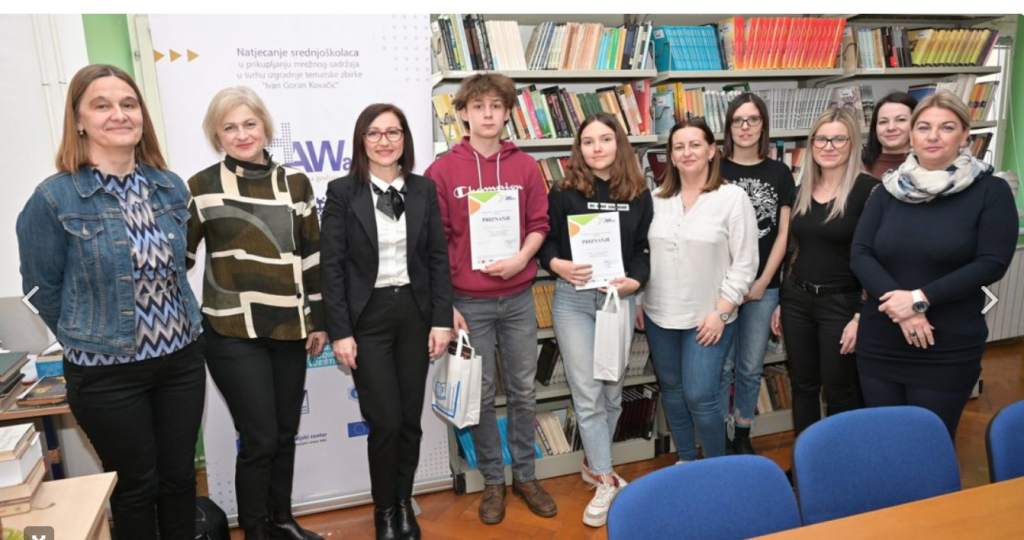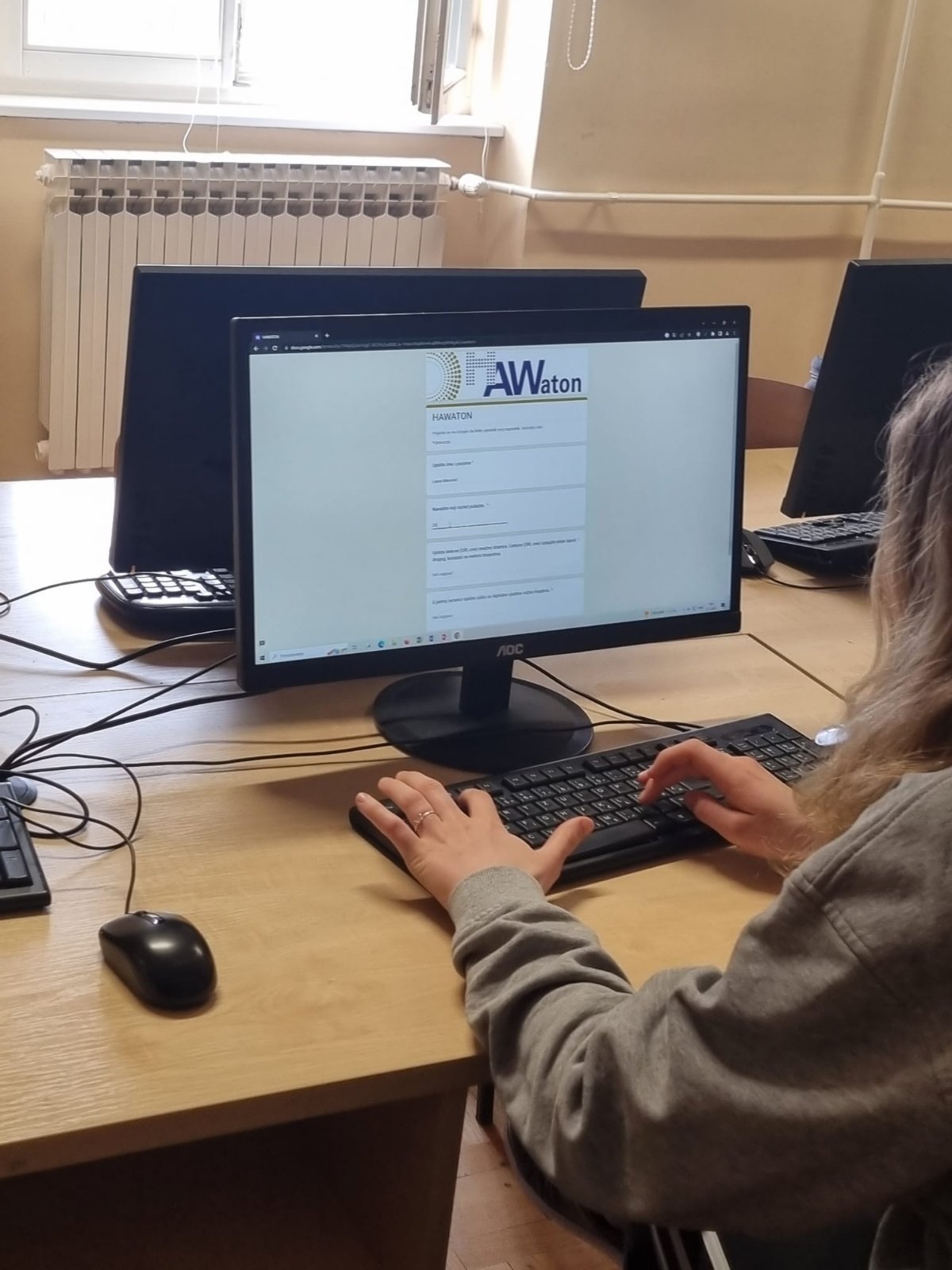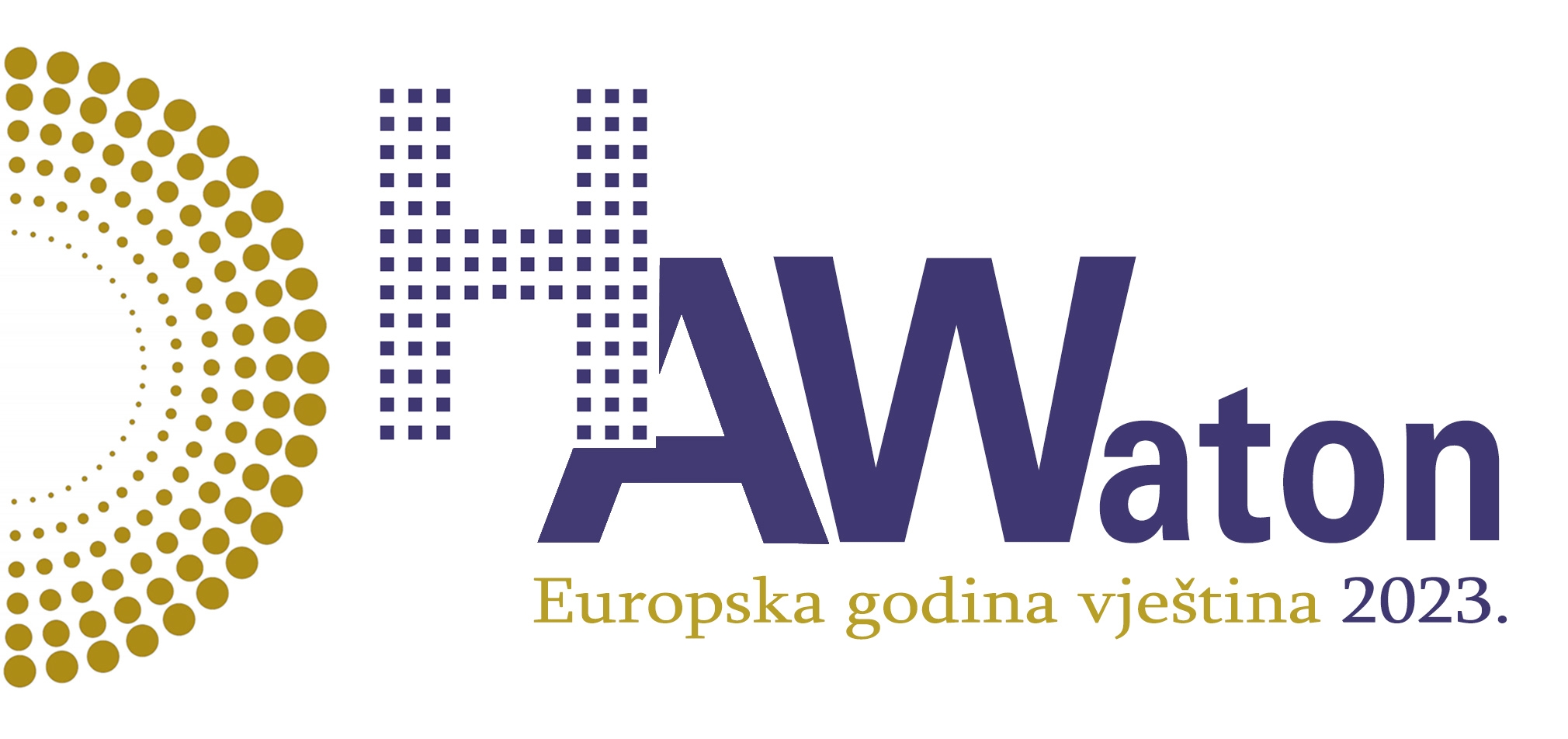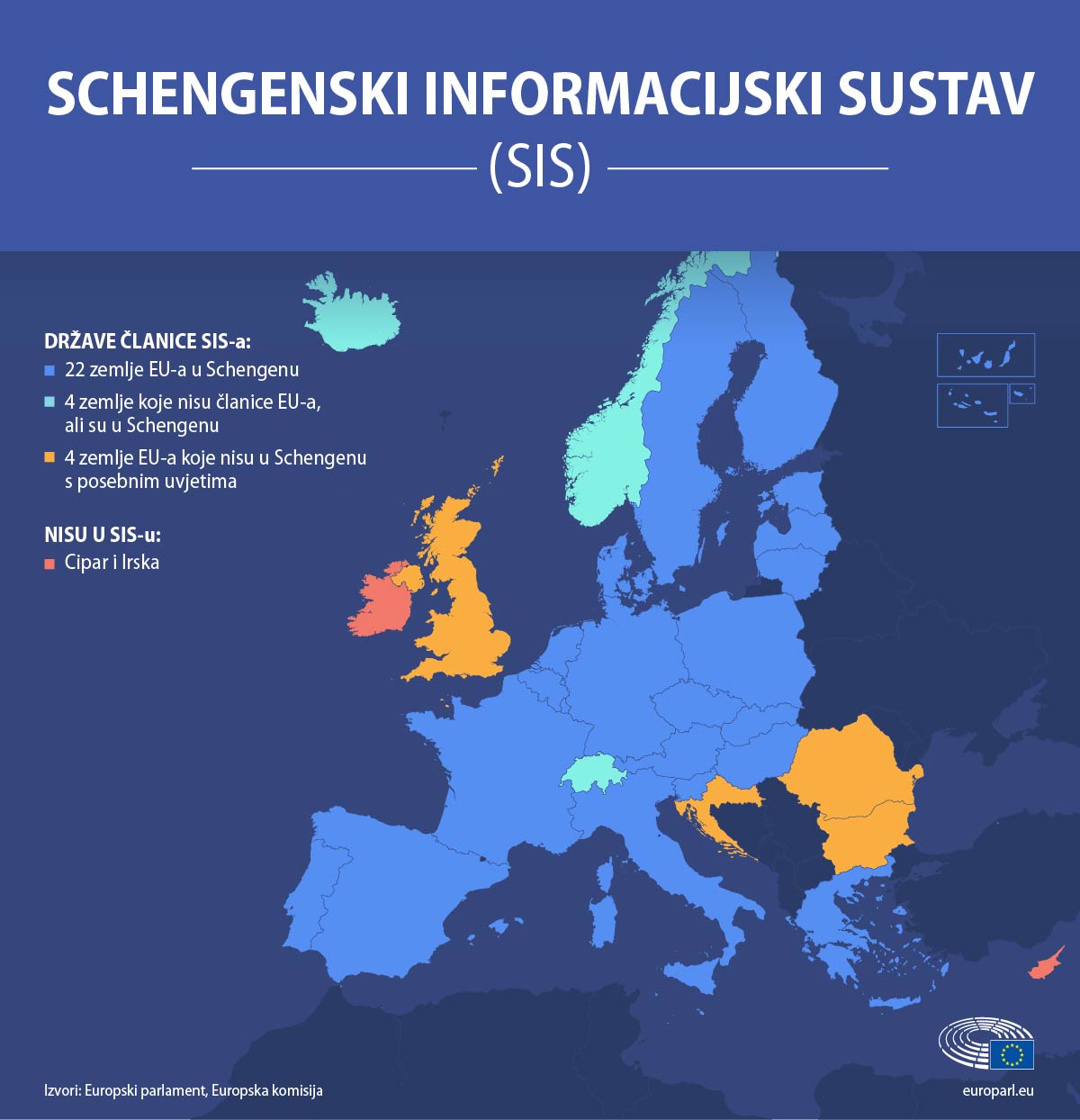What is exactly HAWaton, who organizes it, and what is the result of HAWaton?
HAWaton is a competition that promotes information literacy and digital skills of young people with an emphasis on preserving Croatian digital heritage, which took place on March 21, 2023 at the Gymnasium Karlovac. The competition was created in cooperation between the National and University Library in Zagreb and the "Ivan Goran Kovačić" City Library Karlovac on the occasion of the anniversary of the birth of the Croatian author Ivan Goran Kovačić. Thus, this competition is an opportunity for the City Library "Ivan Goran Kovačić" to celebrate 60 years since it was named after this famous author. The National and University Library in Zagreb participates in the organization through the departments of the Croatian Web Archive (abbreviated as HAW), User Services, and the European Documentation Center NSK, with partners Europe direct Karlovac, Gymnasium Karlovac and European Commission Representation in Croatia.
The main theme of HAWaton is "Ivan Goran Kovačić", and the contestants will collect online content that describes the character and work of the aforementioned writer. The final product of HAWaton is the creation and publication of a digital thematic collection on the Croatian web archive of the National and University Library in Zagreb. The content of the collection will refer to the character and work of the aforementioned writer, and it was the participants of HAWaton who were the main creators of the content. The thematic collection will be published in open access and available to all future researchers who will be interested in the life of Ivan Goran Kovačić.
Students from three classes of Gymnasium Karlovac competed in HAWaton, and the winners were those who collected the largest number of the most accurate online content about Ivan Goran Kovačić within the given time limit. Its winners pointed out that the competition was an educational but also a fun experience for them, and they also received valuable prizes, while the other contestants received consolation prizes.



